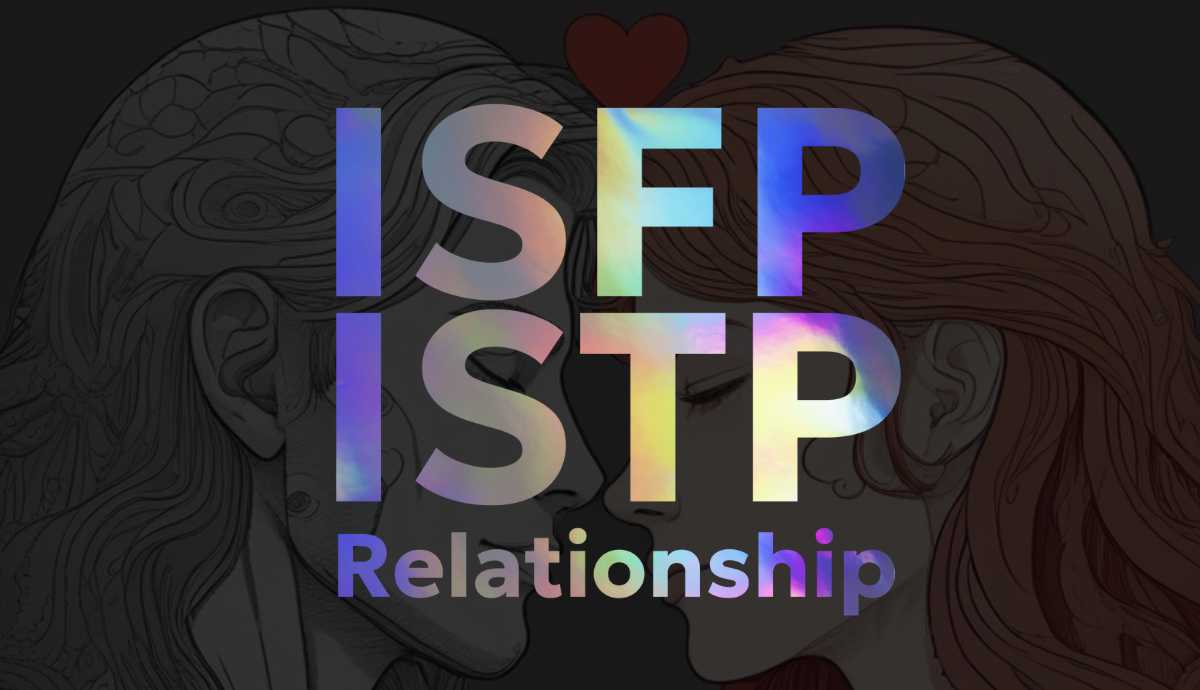The concept of a psychological complex was born out of the work of Jung and Freud. It refers to an abnormal pattern of emotions, memories, and perceptions that manifest as certain impulses, desires and drives. Here is an assessment of the Freudian complex that most characterizes each MBTI type.
INTP – Intelligence Complex
INTPs who first learn about their MBTI personality are likely to take special satisfaction in the validation it gives them as a person of intellectual fortitude. They like being associated with geniuses and enigmatic thinkers such as Einstein, Newton, and Descartes in part because many INTPs may not actually feel that smart in the traditional or practical sense. They can be forgetful, oblivious and may not perform nearly as well as they could academically if they are not interested in the subject matter. They are often able to coast by with decent grades without putting in that much effort but the higher grades that their more assiduous peers may receive can make INTP anxious to demonstrate their brilliance through the knowledge and insights they acquire around the unique and specific niches they obsessively think about and study.
INFP – Guilt Complex
INFPs have a strong focus on self and the inner world of their thoughts and feelings. Because of their strong and sometimes self-centered inward focus, they have a tendency to take many things personally. INFPs are known to be not very good at taking criticism too well because of their sensitivity to being judged by others. They have a moral compass of their own and they often judge themselves harshly enough without having to hear it from other people as well. They can be hard on themselves and when something goes wrong among the people they are near and dear to, it is easy for them to feel somehow responsible. They may a have number of problems and issues of their own for which they feel at fault even when they are probably not to blame.
INFJ – Martyr Complex
INFJ has a self sacrificing aspect to their personality that compels them to often bend over backwards for their loved ones and others who depend on them. INFJs have strong ideals about how the world ought to be and they feel a personal obligation to help facilitate that vision and be a living example of it. INFJs are very receptive and empathetic and have a propensity for soaking up the emotional distress of others and carrying it around as though it were their own cross to bear. It can drain them and depress them but can inspire them to act selflessly for the greater good. The strength of their passion cannot be underestimated because they have the inclination to make tremendous sacrifice in the name of a noble and meaningful purpose.
INTJ – Superiority Complex
For the well adjusted and sociable INTJs out there, this is not likely to be such an issue. This is more likely to pertain to the more antisocial INTJs. The ones who feel shunned, and deprived of the recognition and/or affections they think themselves worthy of all because they don’t know how not to act like a soulless egotistical robot masquerading in a humanoid flesh suit. These INTJs are likely to harbor bitterness towards the world for its unwillingness to embrace them and their ideas. Being unable to find fault in themselves, it can only be that people are just too vapid to appreciate what an intellect they are. Almost everyone appears like a herd following sheep
ENFJ – Messiah Complex
Much like the INFJ, ENFJs feel as though they have an important role to play in humanity. Whether it is in their personal associations like family, friends and colleagues or on a much bigger stage involving communities, organizations and more, ENFJs are compelled to play an active part in group affairs. Because they are good at understanding and moderating interpersonal strife, they can feel it is their duty to intervene and fix things as though it were their ordained mission to do so. ENFJs look at the suffering and injustices that go on and they want to do something about it and they happen to believe they can. They are optimists who tend to think they know what’s best for everyone but can sometimes become meddlesome and interfering to people who didn’t ask for or want their help or advice.
ENFP – Imposter Syndrome
Imposter syndrome is persistent sense of doubt as to the legitimacy of one’s own abilities and accomplishments. People who exhibit this psychological complex have an irrational fear of being exposed as a fraud or imposter. ENFPs very concerned with being authentic and true to themselves and may lead them to constantly question their place in the world. Because they want to feel they have ownership over their accomplishments, any factors such as luck or unearned advantages can undermine their sense of and legitimacy. Comparing themselves with others, they may often feel as though they somehow fall short or don’t quite belong or deserve to be where they are..
ESTJ – Authority Complex
ESTJs seem to be the “salt of the earth” types of people. They are the cornerstones of society who dutifully ensure that what needs to be done gets done. This personality type seems born to hold positions of power and authority, overseeing important system operations and managing organizations. ESTJs strive for legitimacy, status and competence around their fields of interest. Ultimately they like making decisions and because of their assiduous attention to details and knowledge of how things work and what it takes to make them work well, the ESTJ is bound to fancy themselves as an authoritative player in the game. When arrogance and overconfidence is thrown into the mix, they may condescendingly view many people as sheep in need of their direction and competence in order to succeed.
ENTJ – Superman Complex
ENTJs amaze themselves at what they can accomplish sometimes. Where other people fail to see options and opportunities, ENTJ can spot many. They are natural born hustlers with a great mind for engineering plans that will get them where they want to be and possibly change the world in the process. ENTJs may begin to feel like supermen or super women because of their ability to find solutions and reveal pathways that others never thought existed. People marvel at the most successful ENTJs who seem to juggle a million different businesses and projects. It can look as though ENTJs can do it all and because of their energy and highly industrious nature, they may sometimes overestimate their limits..
ISFJ – Abandonment Complex
As introverted feelers, ISFJs enjoy their own company just fine, but also like having one or two close friends to interact with. ISFJs care deeply about their families and the people near and dear to them. It takes some time before ISFJ is comfortable with a new person enough to let down their guards and be themselves. Because of this, when they do let someone into their world, they can become clingy or overly attached. They would rather hold onto the people they have as much as possible and they dread losing their hard-earned relationships due to some unfortunate estrangement. They may have more fear than other MBTI types about being no longer valued by someone or doing something that is disapproved of.
ESFJ – Opinion Complex
ESFJ cares very much about what people think of them. Because they are sensitive to criticism and negative judgement from others, they are constantly orienting and reorienting themselves in order to present themselves in the best possible light. Regardless of how they feel about themselves, they desire external validation from others. Social acceptance is important to them and because they do not have a strong internal sense of personal principle that anchors them, they are more inclined to change their tune for the sake of ingratiating themselves in the eyes of others and attain their stamp of approval.
ISFP – Peter Pan Complex
ISFPs have a youthful sense of wonder about the world that they carry throughout their lives. They drink deep of the joy of being alive and they probably fantasize about immortality and the thought of being able to enjoy an endless experience of beauty and pleasure. Because of their zest for life, ISFPs may have a particular reluctance for getting old and may take great pains and effort toward prolonging their physical exuberance. This is likely to fuel an interest in diet and exercise as part of their plan for longevity. Others may marvel at ISFP’s considerable discipline and commitment in this area, but maintaining their health and wellbeing is mostly a vanity project for them.
ISTJ – Honor Complex
Duty and honor are likely to be two words with great resonance to the ISTJ. ISTJs understand why it’s important to do things the right way and they are typically not ones to cut corners or leave things unfinished or poorly completed. ISTJs may stake their reputations on their work as evidence of their reliability and integrity. Actions speak louder than words and people of this MBTI type focus on delivering the goods and let their work speak for itself. ISTJs seek to be worthy of trust and do not want to be viewed as shiftless incompetent slackers but at the same time can be very judgmental towards those who appear to be lazy and unscrupulous.
ENTP – Jonah Complex
ENTPs are bohemian thinkers who live in the world of ideas and possibilities. However, application of their many ideas and the commitment and work that may go with it can often deter them from acting on and realizing the potential they hold. ENTPs can be their own worst enemy in this respect and consciously or unconsciously avoid following through or pushing themselves far enough to achieve the greatness they are capable of. This type of self sabotage can apply to both their career and relationships when they sense they are going down a road that somehow narrows their options or locks them into something that is binding.
ISTP – Recognition Complex
Although they don’t necessarily go out of their way to attain recognition from others, ISTPs nonetheless can feel slighted when their work or abilities go under appreciated. This may be especially the case when there is competitor involved. ISTPs can become virtuosos developing a high level of skill in what they do but as their mastery grows, their ego may expand along with it. Competition can push them to seek affirmation of their greatness as being above their peers. They may expect their loved ones to take special interest and may take anything short of a reaction of astonishment as a type of rejection.
ESFP – Pollyanna Syndrome
The pollyanna syndrome describes a person who has a persistent optimism to the extent of being unrealistic or even dangerous. ESFPs live for the day and they don’t worry too much about tomorrow or the long term consequences especially if they are too abstract. ESFPs are not known for carrying a dour or glum disposition but are rather the ones who will actively try to turn other people’s frowns upside down. Their glass-half-full attitude can sometimes lead them to be in denial, willfully blind or lack a proper appreciation for the actual significance, gravity and danger of a situation..
ESTP – Huckleberry Finn Syndrome
The Huckleberry Finn Syndrome is a loose term describing someone inclined to impulsively shirk responsibilities to go do what they want. This concerns childhood truancy and rebellious teens who play hooky like Ferris Bueller. In adulthood, these people may undergo frequent job changes and commit excessive absenteeism. ESTPs being a willful and sometimes incorrigible personality type are highly likely to be guilty of this whenever they find themselves saddled with responsibilities that require a constant and regular schedule. Their distaste for predictable routines can spur them to break away eventually at their own discretion regardless of the consequences.
Related Posts:
- The Best Mentor Type for Each MBTI Type
- What Each MBTI Type is Most Hated For
- The Cognitive Blind Spots of Each MBTI Type
- The School of Philosophy You Live By Based on MBTI type
- The First Impression Others Have of You Based on MBTI Type
Want to know your astrology placements? You can generate your astrology chart here with our free birth chart generator tool.
- American Presidents Ranked By Zodiac Sign - January 20, 2025
- ESTP and ESFP in love: 6 Dynamics of Their Relationship - September 4, 2024
- ISFP and ISTP in love: 5 Dynamics of their Relationship. - August 28, 2024






Being a “well adjusted” INTJ is not easy, nor is it constant. Speaking as one who has been through seasons of healthy and unhealthy mental frames, I can say that during those unhealthy times I found myself fluctuating between the extremes of self loathing and superiority. Being one of the most rare personalities, we are one of the most misunderstood—even by our own families. It’s especially difficult to be around SF types, which are one of the most abundant. It’s taken a lifetime of social failures and experimentation for me to be at a place where I can look like a fairly normal person (most of the time) when I’m in social settings.
I say all this to say, I thought your description of the INTJ was a little dismissive, especially compared with your thoughtful insights on the other personalities. I just wanted to give some perspective on this.
Intj is said to be caught in a relent pursuit of perfection. I think this is what hurts them internally. This is the source of the turbulence they endure. You are a purist. Ease up on yourself. Similarly, don’t give care to what people think of you. It is necessary for your health to brush more of this off than you do.